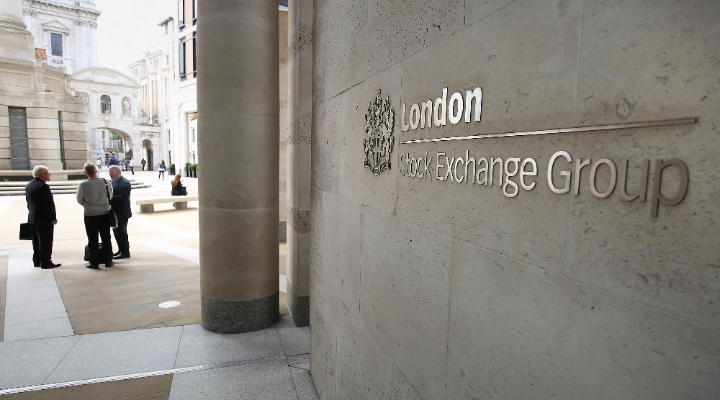
James Norman has taken a more active interest in his investments since retiring two years ago.
He thinks working in banking in the 1980s gave him a good grounding in the principles of investing. James, 61, says: “I am lucky enough to have two good occupational pension schemes, from my time working with TSB, and then subsequently working as a manager in the NHS.”
While these will provide a bedrock to his retirement, he is also looking to build an investment portfolio. He explains: “My wife is seven years younger than me, so won’t be retiring for a while yet.
“I am hoping these investments will provide additional funds for us so we can enjoy our retirement and spend more time together, whether its travelling overseas or around the UK.”
While both of his daughters have now left home - with one recently completing a master's degree, and the other doing a degree in sociology - he adds that the bank of Mum and Dad still provides some funds when needed.
James, who lives in North Lincolnshire, invests in a range of investment trusts as well as some individual share holdings. Some of his holdings have more of a growth orientation, while others are focused on delivered a decent income stream.
He says: “I typically have around 10 to 12 holdings at any one time. I would describe myself as a fairly active investor, as I have sold some of these holdings within two years, but the aim with most is to hold them for the longer term.”
James uses investment trusts to gain exposure to stocks both in the UK and overseas, and tries to keep ensure his holdings are diversified. One investment he has been impressed with is the the three-star rated Henderson Far East Income (HFEL) investment trust. James says: “Since I have invested there has been a small capital loss but this has been more than offset by the income the trust has generated.”
This trust aims to provide shareholders with a growing total annual dividend per share, as well as capital appreciation, from a diversified portfolio of investments from the Asia Pacific region. According to Morningstar data, it has delivered total annualised returns of 9.11% a year over the past three years, and and 8.19% over five years.
James also invests in Gresham House Strategic (GHS) another investment trust, this time focused on smaller companies in the UK market.
James says: “It strikes me that the UK market is very depressed at the moment, while in contrast the US market has been doing very well. I wonder if there will be a correction at some point and we’ll see the UK power ahead and the US edge back. Of course you can’t second guess market movements but I am hoping this trust will be well placed to capitalise as and when this happens.”
This trust has performed well since it launched in 2015. According to Morningstar data it has delivered total annualised returns of 18.65% over the past three years, and a total returns of 32.18% over the past year. It has a two-star rating from Morningstar and is managed by Tony Dalwood, Graham Bird and Rupert Robinson.
Profiting from UK Stocks
Elsewhere James invests in the insurance company Prudential (PRU). It has a three star rating from Morningstar, which indicates shares are fairly valued. Morningstar analysts point out the business has no economic moat, meaning it can be vulnerable to competition from rival financial services companies.
James bought this stock before it de-merged the M&G investment brand. “It has paid a good dividend and I’ve seen a healthy profit on this share,” he adds.
Elsewhere he has also made a small profit from a holding in UK software company Micro Focus International (MCRO). Shares in Micro Focus jumped up during 2016 and 2017, but the company did see the share price fall significantly at the start of 2018.
There has been some recovery since then, but shares have fallen back again and at £10.62 per share remain a long way off their previous high of £33.67. However, James sold before the more recent fall, allowing him to net a profit.
However, not all of his investments have been a success. James admits he got his fingers burned by investing in Interserve (ISJVF) a support services and construction company whose share price crashed this summer.
James says: “I basically lost my entire investment in this company. I have learned a few lessons though and am now far more cautious about investing in companies with high levels of debt and borrowing.”
It has also taught him to be patient - a skill he is putting to practice with an investment in Zytronic (ZYT), which develops and manufactures touch screen products. It uses these in a variety of different ways including financial kiosks, digital signs and medical devices. Again, share prices rose steeply during 2017 but have fallen back since.
James says: “Share prices have fallen by about 20 to 30% but the company continues to pay a decent dividend so I am sticking with it. I can’t see why the market correction has been so sharp so hopefully this will turn around at some point.”
































